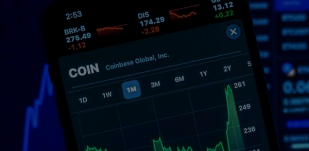How to Pay Overseas Freelancers and Contractors
In the US alone, a record 4.5 million workers quit their jobs in March 2022, exceeding the previous high-water mark set in November 2021. For many the world over, freelance or contract work is preferable to the traditional 9 to 5 - but it's not just this burgeoning section of the workforce that benefits from their newfound professional freedom. These flexible workers offer their clients huge strategic value, such as empowering agility, filling skills gaps, supporting permanent employees, and saving on payroll.

If you are intent on tapping into this global human resource, there’s much to consider before you can harness its potential - not least how to pay freelancers overseas.
Agreeing on payment terms and conditions
The contract negotiation between you and the freelancer or contractor you're hiring will include payment terms and conditions. These determine how remuneration will be handled, providing clarity for everyone involved.
Both parties will agree to the terms when they negotiate these contractor agreements, which cover things like:
- Fees and charges, such as the hourly rate or total fees for a completed project.
- When invoices will be sent and how frequently.
- How the organisation will be invoiced.
- The time frame for payment.
- Any relevant governing laws and authorities, in case of any disputes in payments.
- Consequences of non-compliance in payments.
Ensuring tax compliance
A benefit of working with international contractors is that, typically, there are no additional tax implications. However, you as the employer must determine if overseas contractors are legally established as independent in their contracts. UK employment laws make clear distinctions between directly employed employees and independent contractors.
Provided overseas contractors understand their status, there are generally no differences in tax liability between international and domestic contractors. Under UK law, taxes from payments to overseas contractors are only withheld if they are made for interest or royalties.
Using your bank
If you’re wondering how to pay overseas contractors and think your bank is the best solution, think again. Foreign exchange is a subsidiary service for banks, which means they may not offer the most competitive exchange rates or the fastest international transfers.
Bank transfers are typically made through the SWIFT interbank network - an electronic transfer of funds from one person or institution to another via a global network that banks and transfer service agencies administer. Also known as a wire transfer, this is one of the most convenient and secure ways to send money across borders. Still, there are three distinct disadvantages:
- It can take 2-5 business days to complete international transactions between bank accounts, which could result in delays when paying an overseas contractor.
- High transfer fees are often levied, which depend on where you're transferring to and what bank you use. Some banks charge fees of up to £40 when making an international payment and might also charge a receiving fee.
- The overseas transfer process invariably requires more documentation than domestic transfers, making paying freelancers abroad potentially time-consuming.
Paying with your debit/credit card
Credit and debit cards are ubiquious: in 2021, there were around 2.8 billion credit cards in use worldwide.
You can make online transfers to pay overseas freelancers and foreign contractors in most countries using a credit or debit card, although it’s not the most cost-effective option for several reasons:
- You will typically pay a higher interest rate as a “cash advance”.
- You will pay more in fees.
- You're unlikely to secure a competitive exchange rate.
Using a freelance platform
Freelance marketplaces have become a vital recruitment tool amid the proliferation of this new breed of flexible workers. Sites like Fiverr, Upwork, and Freelancer connect businesses with independent professionals and agencies around the globe - but this convenience comes at a cost.
Due to a lack of competition in the marketplace - the industry is made up of a handful of high-profile providers - these platforms typically charge similar commissions for freelance service buyers ranging from between 3% and 20%.
Take Freelancer, for example: For fixed price projects, a fee of 3% or £2 (whichever is greater) is levied at the time a project has been awarded; for hourly projects, a fee of 3% is levied on each payment that you make to the freelancer overseas.
Choosing an affordable international payment method
Clear Currency helps you process your international payments cost-effectively without compromising on speed or security. When you join us, you can enjoy many benefits:
- A safe and secure online payments platform.
- Fee-free currency transfers.
- Guidance on mitigating risk.
- Bank-beating exchange rates with no commission fees.
- Fast and easy payments in over 35 currencies and 130 countries.
We are also regulated by the Financial Conduct Authority, the conduct regulator for around 51,000 financial services firms and financial markets in the UK.
When you join us you will be assigned a dedicated currency specialist who can work with your business to plan and establish strategies to track, target or fix exchange rates for currency transfers.
Sign up today for international payments with competitive rates and a friendly, personal service.
Related Articles
How to Mitigate Foreign Exchange Risk
Currency risk can have a significant effect on the efficiency and profitability of any international business. Each exchange rate movement affects how much you receive from sales and what you pay to suppliers.
Read more
Moving to Dubai from the UK: Checklist
You’re ready for a new life overseas and have decided you’re moving to Dubai. Now it’s time to consider the various costs involved, from your visa and accommodation, to health insurance, shipping your belongings and bringing your beloved pets along too.
Read more
Currency Outlook Quarter 1 2023
Clear Currency looks back at the performance of the US dollar, euro and sterling in Q4 2022, and assesses what might be in store for Q1 2023.
Read more


